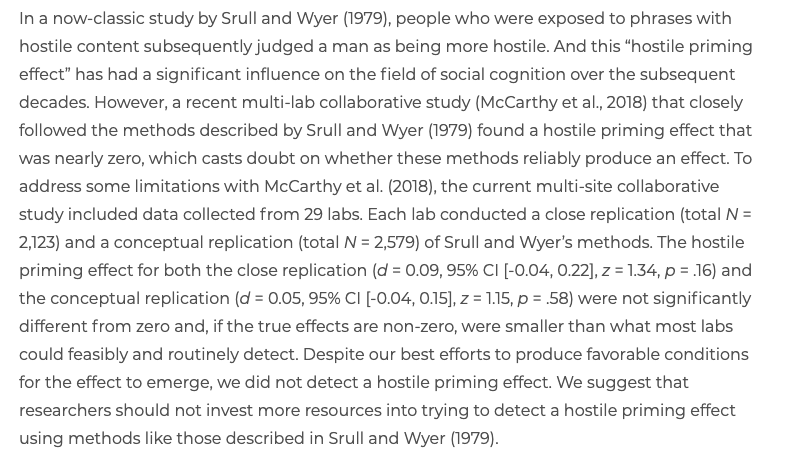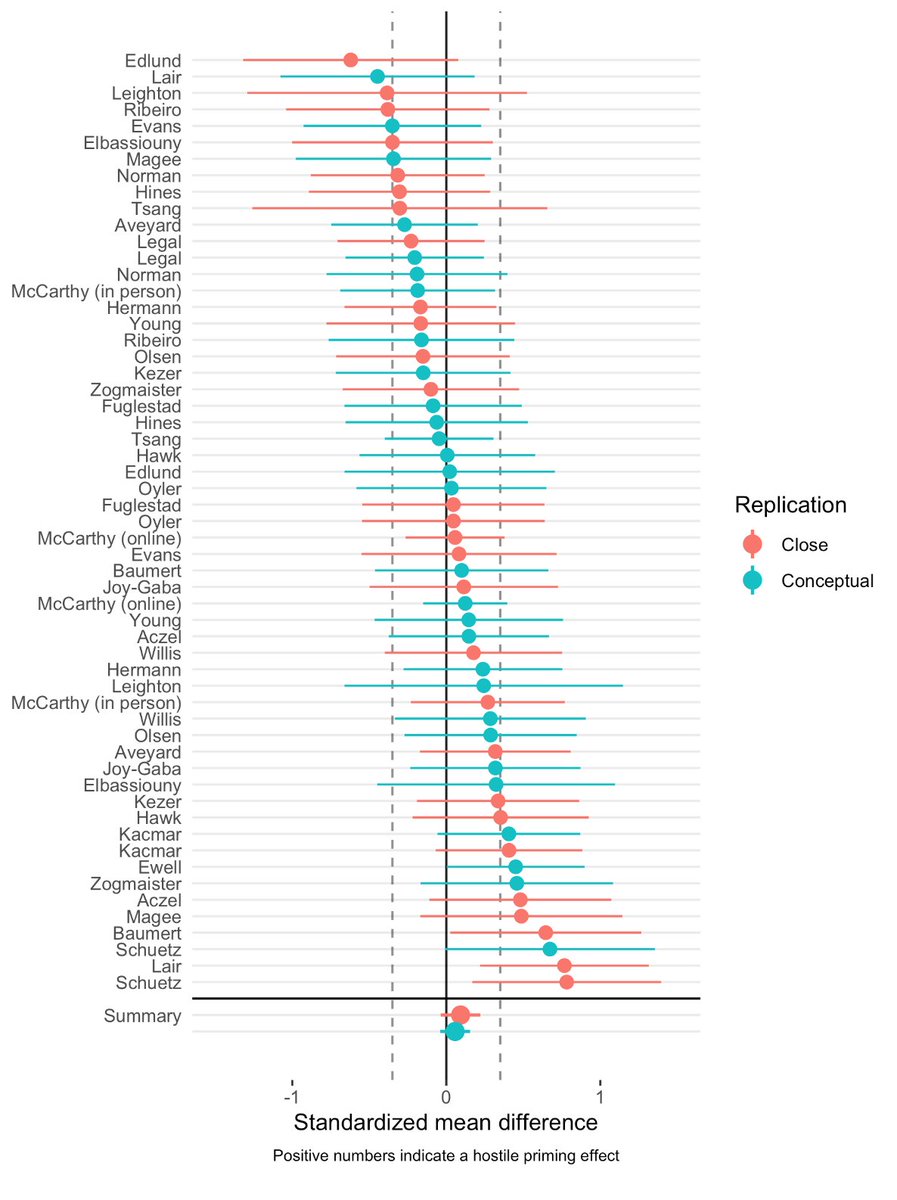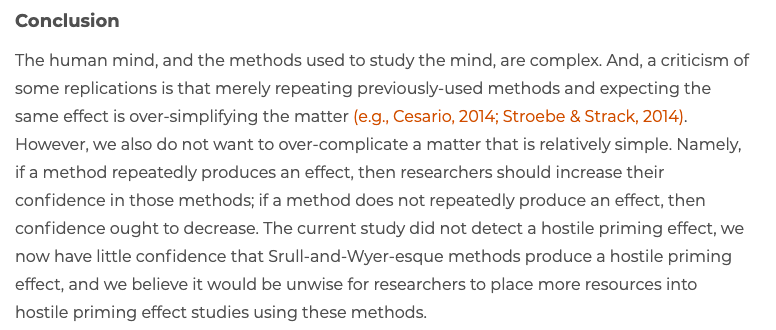New in @CollabraOA, led by Randy McCarthy & @wgervais: "A Multi-Site Collaborative Study of the Hostile Priming Effect"
https://online.ucpress.edu/collabra/article/7/1/18738/116070/A-Multi-Site-Collaborative-Study-of-the-Hostile
Across 29 labs (total N=2,579), we find little evidence that priming hostility influences judgment

https://online.ucpress.edu/collabra/article/7/1/18738/116070/A-Multi-Site-Collaborative-Study-of-the-Hostile
Across 29 labs (total N=2,579), we find little evidence that priming hostility influences judgment

This project has several nice features that make it interesting methodologically:
- close and conceptual replications
- multiple languages (8 total)
- blinded analysis datasets
- co-pilots for analysis
- equivalence tests & a priori SESOI
- use of "positive controls"
- close and conceptual replications
- multiple languages (8 total)
- blinded analysis datasets
- co-pilots for analysis
- equivalence tests & a priori SESOI
- use of "positive controls"
The conclusion of the paper is that we should not be confident in Srull & Wyer-esque methods.
However, I'd go a bit further ...
However, I'd go a bit further ...
Social psych in the 80s and 90s became enchanted with the idea that subtle manipulations of context could cause large impacts on behavior. This idea supported the "situationist" perspective on social psychology
The strongest statement of this idea is by John Bargh.
Bargh argued that these contextual impacts happened automatically.
He called automaticity a "cognitive monster" and portrayed people as acting entirely at the behest of these automatic influences
https://psycnet.apa.org/record/1999-02377-017
Bargh argued that these contextual impacts happened automatically.
He called automaticity a "cognitive monster" and portrayed people as acting entirely at the behest of these automatic influences
https://psycnet.apa.org/record/1999-02377-017
For me, this strong situationist portrayal of human behavior is the biggest single victim of the replication crisis.
I am now very skeptical of any claim that contextual changes have large impacts on behavior.
This project provides another piece of evidence for this skepticism
I am now very skeptical of any claim that contextual changes have large impacts on behavior.
This project provides another piece of evidence for this skepticism

 Read on Twitter
Read on Twitter





